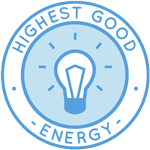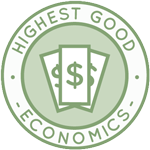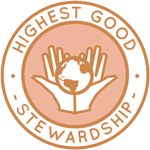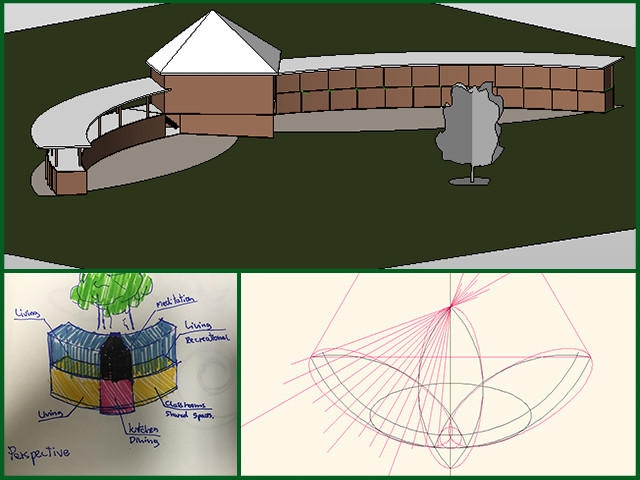Helping All People, Everywhere – One Community Weekly Progress Update #125
Creating a sustainable world is a path to helping all people, everywhere. The components of this sustainable world will spread faster if they move beyond just food, energy, and housing to also include recreation, education, Highest Good economics, and stewardship practices. One Community calls this living and creating for The Highest Good of All:
- Here’s our project overview
- Here’s our world-change methodology
- Here’s how this becomes self-replicating
- Here’s how we are open source and free-sharing all the do-it-yourself designs

OUR MAIN OPEN SOURCE HUBS
Click on each icon to be taken to the corresponding Highest Good hub page.
One Community’s physical location will forward the movement of helping all people, everywhere as the first of many self-replicating teacher/demonstration communities, villages, and cities to be built around the world. This is the August 16th, 2015 edition (#125) of our weekly progress update detailing our team’s development and accomplishments:
Helping All People, Everywhere
One Community Progress Update #125
Here is the bullet-point list of this last week’s design and progress discussed in detail in the video above:
HELPING ALL PEOPLE, EVERYWHERE INTRO @1:05
HELPING ALL PEOPLE, EVERYWHERE HIGHEST GOOD EDUCATION @1:56
- Wrote final 50% of Planet Earth lesson plan behind the scenes, then added that content to the website (see below)
- Behind the scenes: Wrote first 50% of the content for the Quantity and Quality lesson plan
- Created first 50% of the mindmap for the Planet Earth lesson plan and added it to the web page (see below)
- Featured Outer Space lesson plan across social media channels, using the image that Lucas helped us create (see below)
HELPING ALL PEOPLE, EVERYWHERE HIGHEST GOOD FOOD: @3:12
- Featured the open source asparagus hub across our social media channels, using an image we created (see below)
- Researched and added additional recipes to open source achochas hub (see below)
- Added three new delicious recipes from Sandra Sellani to the Food Self-sufficiency Transition Plan (see below)
HELPING ALL PEOPLE. EVERYWHERE HIGHEST GOOD HOUSING: @4:18
- Finished the final 35% of the open source camp setup specifics for the upcoming crowdfunding campaign (see below)
- Sayonara worked on Earthbag Village (Pod 1) shower dome, Duplicable City Center roof, and floor plans of the Straw Bale Village (Pod 2) (see below)
- Matheus completed LEED Tutorial document behind the scenes, and researched how to achieve LEED v4 certification for each of the 7 villages as we build them (see below)
- Adolpho and Jorge completed their work on the vermiculture bathrooms in the Earthbag Village and finished the report for their designs and calculations (see below)
- Fernando and Amauri researched materials for shower heat exchanger and ran simulation on the heat exchanger (see below)
- Welma continued work on waterproofing and composting toilets tutorial and researched and contacted sellers of new aircrete mixers (see below)
- Samantha and Flávia continued renders on Shipping Container Village (Pod 5), Duplicable City Center and Cob Village (Pod 3) (see below)
- Raquel and Dianavresearched case studies for the Earthship Village (Pod 6) and developed the layout of its common areas (see below)
- Erika, Pedro, and Victor improved Compressed Earth Block Village (Pod 4) designs and updated lighting reports for Duplicable City Center and Earthbag Village (see below)
- Sarah continued research for Tree House Village (Pod 7) (see below)
- Thais started developing the dimensions of the rooms for the Tree House Village and worked on the site and floor plans (see below)
- Gabriel finished new renders for the furniture in the Earthbag Village and created preliminary images for the Duplicable City Center’s pallet furniture (see below)
- Gilberto started to create 3D models for the kitchen dome (see below)
- Ana corrected some problems in the structure of the Ultimate Classroom’s projection dome (see below)
HELPING ALL PEOPLE, EVERYWHERE DUPLICABLE CITY CENTER: @8:14
- Began updating the Sketchup 3-D for the Duplicable City Center (see below)
- Began working on the specifics of the rainwater catchment design for around the base of the domes (see below)
- Renata started the components list, cost analysis, and efficiency assessment for the windows and doors of the Duplicable City Center (see below)
- Mayke created an online version of the projects control table and reviewed the architectural designs for the Shipping Container Village and the Earthship Village (see below)
- Ricardo Carrillo and the Structural Intern Team completed the analysis of the influence wind has on all the domes, completed analyzing the internal structures for the three domes, and finalized the sizing for the secondary beams for the cupola-system (see below)
- The Hydraulics Intern Team continued work on the cold and potable water layout, started the fire protection sprinkler system and completed designs for the plumbing components (see below)
- Mike Hogan guided the Electrical Intern Team in another round of improvements to the layout for the control panel that makes the electrical devices in the Duplicable City Center automated, intelligent and energy efficient (see below)
HELPING ALL PEOPLE, EVERYWHERE HIGHEST GOOD SOCIETY: @10:39
- Continued the updating of our entire website to be mobile friendly (see below)
- Lucas created logo options based on the current One Community logo design (see below)
- Manuella and Carolina designed another 10% of the Tree House Village layout book (see below)
- Eduardo created a storyboard for the One Community promotional video and worked on our weekly video blog update (see below)
- Manasses worked on the online presentations he is creating for all seven of One Community’s villages (see below)
- The Software Development Intern Team continued working on the Highest Good Network application and database (see below)
- Gustavo continued work on the One Community iPhone app (see below)
HELPING ALL PEOPLE, EVERYWHERE SUMMARY: @12:26
How you can most help us right now and how anyone can help
CLICK HERE IF YOU’D LIKE TO RECEIVE AN EMAIL EACH WEEK WHEN WE RELEASE A NEW UPDATE
YOU CAN ALSO JOIN US THROUGH SOCIAL MEDIA
ONE COMMUNITY WEEKLY UPDATE DETAILS
HELPING ALL PEOPLE, EVERYWHERE HIGHEST GOOD EDUCATION PROGRESS
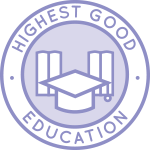 One Community is focused on helping all people, everywhere through Highest Good education that is for all ages, applicable in any environment, adaptable to individual needs, far exceeds traditional education standards, and more fun for both the teachers and the students:
One Community is focused on helping all people, everywhere through Highest Good education that is for all ages, applicable in any environment, adaptable to individual needs, far exceeds traditional education standards, and more fun for both the teachers and the students:
Learn about the components: Education open source hub
Learn how the components work together: How to use the Education for Life Program
This last week the core team wrote the final 50% of the Planet Earth lesson plan behind the scenes, then added that content to the website, bringing the written part of this lesson plan to 100% complete on the site:
In addition, we wrote the first 50% of the content for the Quantity and Quality lesson plan behind the scenes.
We also created the first 50% of the mindmap for the Planet Earth lesson plan and added it to the web page. You can see that mindmap here:
And we featured the Outer Space lesson plan across our social media channels, using this image that Lucas from the Graphic Design Intern Team helped us create:
HELPING ALL PEOPLE, EVERYWHERE HIGHEST GOOD FOOD PROGRESS
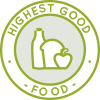 One Community is focused on helping all people, everywhere through Highest Good food that is more diverse, more nutritious, locally grown and sustainable, and part of our open source botanical garden model to support and share bio-diversity:
One Community is focused on helping all people, everywhere through Highest Good food that is more diverse, more nutritious, locally grown and sustainable, and part of our open source botanical garden model to support and share bio-diversity:
Learn about the structures: Hoop House Hub | Aquapini & Walipini Open Source Hub
See what we’ll be growing: Gardens & Hoop Houses | Large-scale Structures | Food Forest | TA
This last week the core team featured the open source asparagus hub across our social media channels, using this image that we created:
We also researched and added additional recipes to the open source achochas hub, which you can see here. More recipes from our Food Self-sufficiency Transition Plan will be added to each of the individual hubs in the future.
Last but not least, we added three new delicious recipes from Sandra Sellani (Vegan Chef and author of What’s Your BQ?) to the Food Self-sufficiency Transition Plan ” These recipes are: Quinoa Breakfast, Greek Salad in a Jar, and Field Roast Sausage and Latkes Poppers:
HELPING ALL PEOPLE, EVERYWHERE HIGHEST GOOD HOUSING PROGRESS
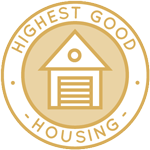 One Community is focused on helping all people, everywhere through Highest Good housing that is artistic and beautiful, more affordable, more space efficient, lasts longer, DIY buildable, and constructed with healthy and sustainable materials:
One Community is focused on helping all people, everywhere through Highest Good housing that is artistic and beautiful, more affordable, more space efficient, lasts longer, DIY buildable, and constructed with healthy and sustainable materials:
Learn about: Our Upcoming Crowdfunding Campaign
Learn about the different village models: 7 Sustainable Village Models
Visit the open source portals for the first two: Earthbag Village OS Hub | Straw Bale Village OS Hub
This last week the core team finished the final 35% of the open source camp setup specifics for the upcoming crowdfunding campaign.
This included a final review of the document and adding FDA approved serving & food prep gloves, auger bits, rearranging the order of entities, adding tarps & sleeping pads, deleting a few items, and researching 4 different types of rope to determine the best choice for minimizing UV degradation.
We are now 100% complete with this document.

Behind-the-Scenes Camp Setup Specifics for Upcoming Crowdfunding Campaign ” 100% Complete – Click to Visit
Sayonara (a member of the Architecture and Planning Intern Team) updated the 3D model of the shower dome in the Earthbag Village (Pod 1) and the 3D model of a new roof for the cupola of the Duplicable City Center.
She also brought the floor plans of the Straw Bale Village (Pod 2) to 90% completion:
Civil Engineering intern Matheus finished the last 20% of the LEED Tutorial document, so it is now 100% complete behind the scenes. He also gathered all the questions related to our projects that will help us understand how to achieve LEED v4 certification for each of the 7 villages as we build them.
Adolpho and Jorge from our Mechanical Engineering Intern Team brought the design for the vermiculture bathrooms in the Earthbag Village to 100% complete, and finished the report for their designs and calculations.
Fernando and Amauri, who are also both members of the Mechanical Engineering Intern Team, researched where to buy the materials they need so they can build a prototype of the shower heat exchanger.
They also ran simulation on the heat exchanger using ABS pipes, and the results were the same as they were with PVC pipes.
Welma edited, reviewed, and changed the format of her tutorials on waterproofing and composting toilets. She also researched and contacted sellers of new aircrete mixers for further information.
Meanwhile, Samantha and Flávia, members of the Architecture and Planning Intern Team, worked on a process book and additional renders for the Shipping Container Village (Pod 5).
Additionally, Samantha wrote DIALux tutorials and Flavia did the first draft of the recycled pallet bed frame for the units in the Duplicable City Center and designed the interior layout for the Cob Village (Pod 3).
Raquel and Diana, also members of the Architecture and Planning Intern Team, researched case studies to plan the exterior areas for the Earthship Village (Pod 6) and developed the layout of its common areas. They rearranged the floor plan to add more toilets and fire escapes.
Erika, Pedro, and Victor from the Architecture and Planning Intern Team improved their preliminary designs of the Compressed Earth Block Village (Pod 4) to include the best solar orientation during the Winter Solstice and began designing the village in Revit.
They also updated the final lighting design reports for both the Duplicable City Center and the Earthbag Village.
Sarah, another member of the Architecture and Planning Intern Team, continued research for Tree House Village (Pod 7), and focused on finding sustainable, lightweight, high R-value insulation for the treehouse structures.
Thais from the Architecture and Planning Intern Team started developing the dimensions of the rooms for the Tree House Village. She also worked on the the site plan and floor plans.
Gabriel finished new renders for the furniture inside the 3-dome clusters in the Earthbag Village, which include updated lighting and materials. He also created preliminary images for the Duplicable City Center’s pallet furniture.
Gilberto from the Graphic Design Intern Team, started to create 3D models for the kitchen dome. This will be added to our website in a format that user can interact with, with abilities to zoom in and out, and rotate the dome.
And finally, Ana corrected some problems in the structure of the Ultimate Classroom’s projection dome.
HELPING ALL PEOPLE, EVERYWHERE DUPLICABLE CITY CENTER PROGRESS
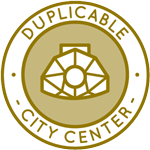 One Community is focused on helping all people, everywhere through a Duplicable and Sustainable City Center that is LEED Platinum certified/Sustainable, can feed 200 people at a time, provide laundry for over 300 people, is beautiful, spacious, and saves resources, money, and space:
One Community is focused on helping all people, everywhere through a Duplicable and Sustainable City Center that is LEED Platinum certified/Sustainable, can feed 200 people at a time, provide laundry for over 300 people, is beautiful, spacious, and saves resources, money, and space:
Learn about this building and it’s function: Duplicable City Center Open Source Hub
This week the core team began updating the Sketchup 3-D for the Duplicable City Center. This weeks’ focus was on the new elevator and stairwell placement and design plus the new cupola roof design. We’d say we’re about 10% complete with the 3-D update:
We also began working on the specifics of the rainwater catchment design for around the base of the domes. You can see this work here:
Civil Engineering intern Renata started the components list, cost analysis, and efficiency assessment for the windows and doors of the Duplicable City Center, including all the National Fenestration Rating Council values and the code requirements for Egress windows:
Mayke created an online version of the projects control table and reviewed the architectural designs for the Shipping Container Village (Pod 5) and the Earthship Village (Pod 6):
Ricardo Carrillo (Design Consultant and Principal of Acumen Industries) and the Structural Intern Team (Antonio, Gabriel, Beatriz, Fernando, Rodrigo, and Maurilio) completed the analysis of the influence wind has on all the domes, completed analyzing the internal structures for the three domes, and finalized the sizing for the secondary beams for the cupola-system:
Diogo, Izadora, Joao, Mateus, and Roberto from the Hydraulics Intern Team added an additional 60% to the cold and potable water layout, bringing that to 80% complete. They then worked on the fire protection sprinkler system and brought the 2D image of it to 60% completion and the 3D image to 80% completion.
They also completed the designs for the plumbing components according to LEED V4 specification. And finally, they linked all their individual work together into one final, combined project.
And finally, Mike Hogan (Automation Systems Developer and Business Systems Consultant) guided Fabio, Lucas de Souza, Lucas Tsutsui da Silva, Guilherme, Henrique, Tiago, and Israel of the Electrical Intern Team in another round of improvements to the layout for the control panel that makes the electrical devices in the Duplicable City Center automated, intelligent and energy efficient.
They also worked on aligning the electrical in the City Center to commercial standards according to the 2014 National Electrical Code for U.S. requirements.
HELPING ALL PEOPLE, EVERYWHERE HIGHEST GOOD SOCIETY PROGRESS
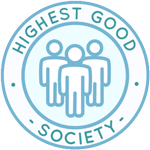 One Community is focused on helping all people, everywhere through a Highest Good society approach to living that is founded on fulfilled living, the study of meeting human needs, Community, and making a difference in the world:
One Community is focused on helping all people, everywhere through a Highest Good society approach to living that is founded on fulfilled living, the study of meeting human needs, Community, and making a difference in the world:
Read the Highest Good society overview: Highest Good Society
Learn about the model for fulfilled living and sharing: A Day in the Life
Learn about the 4 economic models: RBE | For-profit | Non-profit | Entrepreneurship
Learn about our open source community collaboration and management software: The Highest Good Network
This last week the core team continued the updating of our entire website to be mobile friendly. This week’s work included correcting the final 40+ pages of formatting errors. This brings us to 95% complete with only 115 old blogs to be updated.

Helping All People, Everywhere – Continued Updating Our Entire Website to be Mobile Friendly
Lucas from the Graphic Design Intern Team created logo options based on the current One Community logo design, as you can see here:
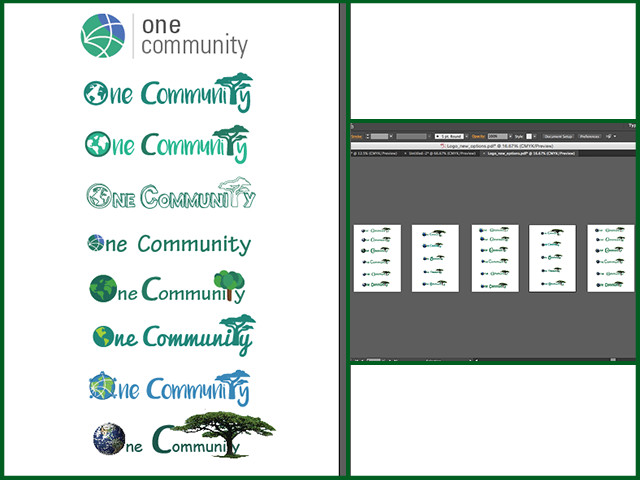
Helping All People, Everywhere – Created New Logo Options Based on the Current Logo
Manuella, also part of the Graphic Design Intern Team worked with Carolina, a service design student, on correcting transcripts and storyboards for the videos they are creating for the Tree House Village.
They also continued their work on the online presentation book for this village, and added updates to the village’s layout and structures.
Eduardo, another member of the Graphic Design Intern Team, created a storyboard for the One Community promotional video. He also created collages, synced the audio, revised, and finished the portion of our weekly video blog update that reports the work the interns complete.

Created One Community Promotional Video Storyboard and Finished the Weekly Video Blog
Graphic Design Intern Manasses created text documents to explain the creation process for the online presentations he is creating for all seven of One Community’s villages:
Igor, Marco, Matheus, and Natalia of the Software Development Intern Team, continued working on updates to the Highest Good Network application and database, which included programming the report pages, defining the requirements of the badge systems, and completing the setup page:
And last but not least, Gustavo (Mobile Software Developer) continued work on the One Community iPhone app included bug fixes, finishing the QR scanner, and work on the comment feature which allows real time communication between collaborators:

Helping All People, Everywhere – Contined Work on One Community iPhone Application
AND WE PRODUCED THIS WEEKLY UPDATES BLOG – CLICK HERE TO SUBSCRIBE
FOLLOW ONE COMMUNITY’S PROGRESS (click icons for our pages)
INVESTOR PAGES
GET INVOLVED
CONSULTANTS | WAYS ANYONE CAN HELP | MEMBERSHIP
CLICK HERE FOR ALL PAST UPDATES
 One Community
One Community